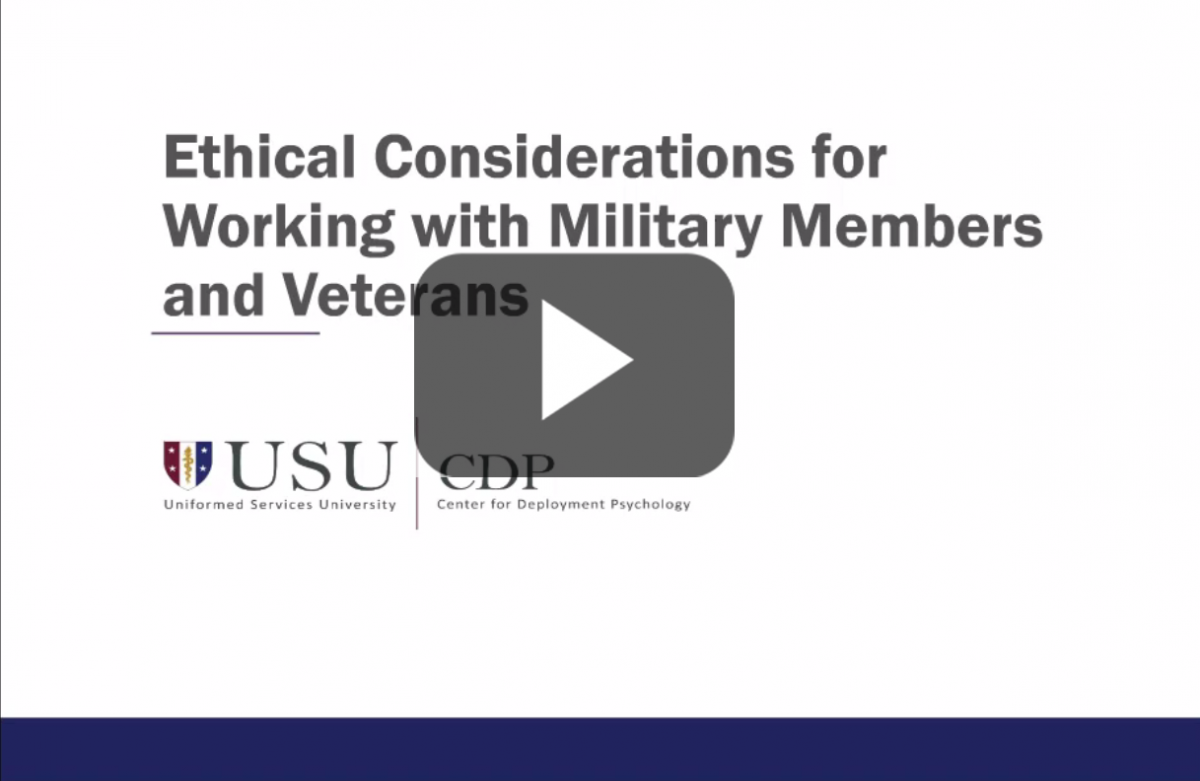
Ethics of Employing Family Members A Guide
Ethics of employing family members is a complex area, often fraught with potential conflicts and challenges. This guide delves into the intricacies of navigating familial relationships within the professional sphere, exploring everything from defining the parameters of such employment to maintaining professional boundaries and ensuring fair compensation. We’ll examine the potential pitfalls and explore strategies for successful and ethical family employment arrangements.
From legal frameworks and cultural norms to the impact on family dynamics, this comprehensive exploration will equip you with the knowledge to make informed decisions. We’ll analyze potential conflicts of interest, discuss fair compensation, and ultimately, present a framework for maintaining professional standards in family employment situations.
Defining the Scope of Family Employment

Family employment, encompassing various familial relationships, presents a complex interplay of legal, ethical, and cultural considerations. Navigating these intricacies requires a clear understanding of the parameters, potential scenarios, and regulatory frameworks that shape such arrangements. This exploration delves into the multifaceted nature of family employment, highlighting the importance of ethical awareness and legal compliance in these relationships.Defining the parameters of family employment is crucial for clarity and consistency.
It encompasses diverse familial ties, including parent-child, sibling-sibling, and spouse-spouse relationships, and extends to extended family members in certain situations. Crucially, these parameters must consider the nuances of each relationship, acknowledging the potential for both mutual benefit and exploitation.
Parameters of Family Employment
Family employment arrangements can manifest in a wide array of scenarios. Understanding these scenarios is essential for assessing the ethical implications and legal standing of such relationships.
- In-home care: A common scenario involves parents providing care for elderly parents or children with disabilities. This arrangement can be beneficial for both parties, offering support and reducing financial strain. However, it necessitates clear agreements regarding compensation, responsibilities, and expectations to prevent misunderstandings and potential disputes.
- Business partnerships: Family members may collaborate in business ventures, fostering close working relationships and leveraging shared expertise. However, these partnerships require formal agreements outlining roles, responsibilities, profit sharing, and dispute resolution mechanisms to avoid conflicts and ensure transparency.
- Independent contractor relationships: One family member might contract their services to another, offering specialized skills or expertise. This approach requires careful consideration of tax implications, legal requirements, and potential conflicts of interest.
Legal and Regulatory Frameworks
Legal frameworks surrounding family employment vary across jurisdictions. Understanding these differences is crucial for ensuring compliance and mitigating potential risks.
- Labor laws: Different countries have specific labor laws regarding wages, working hours, and employee rights. These laws often apply to family employment, even if the relationship is informal. Failure to adhere to these laws can lead to legal repercussions and damage the reputation of the business.
- Tax regulations: Tax implications of family employment arrangements need careful consideration. Incorrect reporting or non-compliance can result in substantial penalties and legal challenges. Clear documentation and adherence to tax regulations are paramount.
- Employment contracts: While not always mandatory, formal employment contracts can clarify roles, responsibilities, compensation, and dispute resolution procedures. They provide a safeguard for both parties and can prevent future disagreements.
Ethical Challenges
Cultural norms significantly impact the ethical landscape of family employment. These norms influence perceptions of fairness, reciprocity, and appropriate compensation.
- Varying compensation expectations: Cultural norms regarding appropriate compensation for family members working together can differ substantially. Establishing clear, mutually agreed-upon compensation structures is crucial to prevent resentment and disputes.
- Potential for exploitation: The close relationship between family members can create vulnerabilities, potentially leading to exploitation. Establishing clear boundaries and contractual agreements can mitigate these risks.
- Confidentiality concerns: Information shared within a family setting can be sensitive. Implementing clear confidentiality protocols is vital in family employment to protect privacy and avoid conflicts.
Potential Conflicts of Interest
Family employment, while seemingly a heartwarming gesture, can create complex ethical dilemmas. The inherent closeness and emotional ties can cloud professional judgment, potentially leading to unfair advantages for family members and disadvantages for others. Navigating these relationships requires a conscious effort to maintain objectivity and ensure fairness for all.
Favoritism and Nepotism, Ethics of employing family members
Favoritism and nepotism, while often unintentional, are significant potential conflicts in family employment. Favoritism involves showing partiality toward a family member in employment decisions, such as promotions, assignments, or resource allocation. Nepotism extends this to include hiring or favoring family members over qualified external candidates. These practices, even if well-intentioned, can damage morale and create an uneven playing field within the workplace.
Influence on Professional Judgments
Family relationships can significantly influence professional judgments. For example, a manager might be less critical of a family member’s performance or overlook shortcomings, leading to a less-than-ideal outcome for the company or other employees. Conversely, the manager might be unduly harsh on a non-family member, perhaps influenced by subconscious biases stemming from the family relationship. This can affect the employee’s career trajectory and the overall workplace environment.
Compromised Objectivity and Fairness
Family employment situations can compromise objectivity and fairness in several ways. Consider a situation where a family member is struggling to meet performance standards. A manager with strong familial ties might be tempted to overlook or downplay these issues, leading to a lack of accountability for the family member. This can create a sense of injustice among other employees who are held to higher standards.
Similarly, a promotion might be given to a less qualified family member over a more qualified non-family member, undermining the company’s meritocratic principles.
Maintaining Professional Boundaries
Maintaining clear professional boundaries is crucial in family employment situations. This involves separating personal relationships from professional responsibilities. A clear understanding of roles, responsibilities, and performance expectations must be Artikeld and consistently applied, regardless of familial ties. Formal policies and procedures should be in place to address any potential conflicts. This may include requiring external assessments of performance for family members or utilizing independent third parties to make crucial decisions involving family members.
Companies should prioritize fairness and transparency to ensure all employees are treated equally.
Fair Compensation and Treatment: Ethics Of Employing Family Members
Family members often bring unique perspectives and strengths to the workplace. However, employing family members necessitates a rigorous commitment to fair compensation and equitable treatment to avoid potential conflicts of interest and maintain a professional and respectful work environment. This commitment ensures that the family member’s contributions are valued and recognized without any biases stemming from familial relationships.Equal pay for equal work is a fundamental principle in any employment setting.
Implementing this principle within a family business context is crucial to fostering trust and preventing resentment among both the family member and other employees. This also upholds the company’s reputation and avoids legal issues arising from perceived discrimination or unfair practices.
Ensuring Equitable Compensation
Fair compensation is not just about paying a comparable salary to the market rate for a given role. It also involves considering the individual’s skills, experience, and contributions within the company. Family members should be assessed based on their performance and contributions, similar to non-family employees, without any preferential treatment.
Learn about more about the process of cima ethics confidentiality rules in the field.
Examples of Unequal Pay or Treatment
Instances of unequal pay or treatment can arise due to implicit biases or familial ties. For example, a family member might be assigned a role with responsibilities that are below their qualifications but are deemed appropriate for their familial connection. Alternatively, a family member might receive a higher salary than a non-family employee with similar skills and experience, creating an impression of favoritism.
Such situations can undermine morale among other employees and erode trust in the fairness of the company’s compensation system.
Procedures for Transparency and Impartiality
To ensure transparency and impartiality in compensation and benefits decisions, companies should establish clear, documented procedures. These procedures should include regular performance evaluations that are objective, based on clearly defined criteria, and consistently applied to all employees, including family members. This process should be transparent, allowing for review and feedback from all stakeholders.
“Compensation decisions should be based on objective criteria and performance evaluations, not on familial relationships.”
Non-Discrimination Policies
Robust non-discrimination policies are essential in family employment. These policies should explicitly prohibit discrimination based on familial ties in all aspects of employment, including hiring, promotion, compensation, and termination. Policies should also cover equal opportunities and address potential biases or stereotypes that could lead to unfair treatment.
- Non-discrimination policies should explicitly address family relationships to prevent any implicit biases or assumptions.
- These policies should cover all aspects of employment, including recruitment, evaluation, promotions, compensation, and termination.
- Regular review and update of these policies are essential to ensure their continued relevance and effectiveness.
Impact on Family Dynamics

Family employment, while potentially beneficial for both the family and the employed individual, can significantly impact familial relationships. It’s crucial to understand the potential positive and negative effects to navigate these dynamics effectively. The complexities of shared workspaces and responsibilities, combined with the emotional ties within the family, often create unique challenges and opportunities.Understanding how family employment can strengthen or strain bonds requires a nuanced approach.
It’s not simply a matter of whether employment exists, but also the nature of the employment, the family structure, and the communication strategies employed. The key lies in recognizing the potential pitfalls and proactively implementing strategies to foster healthy relationships.
Positive Effects on Family Relationships
Family employment can foster closer bonds if managed appropriately. Shared responsibilities and mutual support, especially in small businesses, can create a sense of unity and shared purpose. The collective effort often leads to increased communication and understanding among family members. For example, a family-run bakery where children help with baking and customers interact with the entire family can strengthen familial ties and provide a sense of shared accomplishment.
Negative Effects on Family Relationships
Conversely, family employment can strain relationships if not handled with care. Conflicts of interest, differing expectations, and uneven workloads can easily lead to tension and resentment. For instance, disagreements over compensation, job responsibilities, or work-life balance can become major points of contention. Competition for resources, or perceived favoritism in employment, can further complicate the situation.
Sources of Tension and Conflict
Several factors contribute to potential family conflicts stemming from employment. Unequal workloads, different perspectives on work ethic, or varying expectations regarding job performance can create friction. Differences in compensation, perceived unfairness in compensation, or unequal access to resources can also be significant sources of tension. For example, a sibling who feels they are underpaid or overworked in a family business compared to another might resent the situation.
Strategies for Mitigating Conflicts
Clearly defined roles, responsibilities, and expectations are crucial for mitigating conflicts. A formal employment agreement outlining compensation, work hours, and responsibilities can prevent misunderstandings and disputes. Open communication channels and regular family meetings can facilitate dialogue and address issues proactively. Encouraging transparency and mutual respect can also contribute to healthier family dynamics. For instance, regular family meetings dedicated to discussing business matters and personal concerns can help manage potential conflicts.
Maintaining Professional Standards
Family employment, while offering unique benefits, necessitates a rigorous commitment to ethical standards. Blurred lines between personal and professional relationships can easily lead to conflicts of interest and undermine the integrity of the entire operation. Upholding professional standards ensures fairness, transparency, and respect for all involved parties, fostering a positive and productive work environment.
Importance of Professional Standards in Family Employment
Professional standards, particularly in family employment, are crucial for ensuring equitable treatment and maintaining trust. This includes adherence to fair compensation, clear job descriptions, and consistent performance evaluations. Deviating from professional standards can damage the family dynamic and create legal or reputational risks. Maintaining these standards builds a strong foundation for long-term success and harmonious relationships.
Professional Codes of Conduct Relevant to Family Employment
Several professional codes of conduct, although not specifically tailored to family employment, provide valuable guidance. These codes often address ethical dilemmas, conflicts of interest, confidentiality, and the importance of objectivity. The relevant principles from professional codes related to human resources, business ethics, and potentially even legal regulations should be integrated into family employment policies.
- Code of Ethics for Human Resources Professionals: This code emphasizes fairness, respect, and objectivity in personnel management practices. It guides the development and implementation of policies that address hiring, compensation, performance evaluation, and termination, ensuring that these processes are applied consistently and without bias.
- Business Ethics Codes: Business ethics codes often Artikel principles of honesty, integrity, and transparency. They emphasize avoiding conflicts of interest and maintaining objectivity in decision-making, particularly when family members are involved in business transactions.
- Legal Regulations: Depending on the specific jurisdiction and nature of the employment, local laws and regulations regarding employment practices, labor standards, and anti-discrimination policies might be applicable and critical to ensure compliance.
Applying Professional Standards to Specific Situations
Illustrative scenarios can highlight the application of professional standards in family employment situations. Consider a scenario where a family member is hired for a role that requires specialized skills, but lacks the necessary experience for the position.
- Hiring Decision: The hiring process should prioritize objective criteria such as skills, qualifications, and experience, even when a family member is being considered. A detailed job description and evaluation process should be implemented to ensure that all candidates, including family members, are assessed fairly and transparently.
- Compensation and Benefits: Compensation should be commensurate with the job responsibilities and market value, irrespective of the employee’s familial relationship. Benefits packages should be consistent with established company policies and adhere to local regulations.
- Performance Management: Performance evaluations should be conducted objectively and consistently, using established metrics and standards. Family members should be subject to the same performance expectations and disciplinary procedures as other employees.
Steps to Take When Facing Ethical Dilemmas
Navigating ethical dilemmas in family employment requires a structured approach. The key is to prioritize objectivity and transparency.
- Identify the Issue: Clearly define the ethical dilemma, outlining the conflicting values or principles involved.
- Gather Information: Collect relevant facts and data to understand the situation fully, ensuring all parties involved are considered.
- Consult with Experts: Seek guidance from legal counsel or other relevant experts to understand the legal and ethical implications of the dilemma.
- Consider Alternatives: Explore different courses of action and their potential consequences, prioritizing fairness and transparency.
- Choose and Implement the Best Solution: Select the course of action that best aligns with professional standards and ethical principles, documenting the decision-making process.
External Perspectives on Family Employment
Employing family members presents a unique set of ethical and practical challenges. Understanding the diverse perspectives of various stakeholders is crucial for navigating these complexities and fostering fair and productive relationships. This section explores the views of employees, employers, family members, regulatory bodies, professional organizations, legal experts, and financial advisors, providing a comprehensive overview of the multifaceted considerations involved.Different groups often have contrasting viewpoints regarding the fairness and appropriateness of family employment.
These perspectives are shaped by their individual roles and vested interests, leading to varying interpretations of ethical conduct and potential conflicts of interest.
Stakeholder Perspectives on Family Employment
Understanding the perspectives of various stakeholders is essential for navigating the ethical and practical challenges of family employment. Different groups hold varying viewpoints influenced by their individual roles and vested interests.
- Employees: Employees may perceive family employment as unfair if they believe it leads to preferential treatment or an uneven playing field. They may also be concerned about potential favoritism or bias in decision-making processes. Examples include unequal opportunities for promotion or assignment of tasks based on family ties.
- Employers: Employers may see family employment as a way to leverage existing relationships and potentially reduce recruitment costs. However, they may also be concerned about potential conflicts of interest and the impact on workplace morale and productivity. Examples include the employer’s concern over maintaining objectivity and impartiality in evaluating performance.
- Family Members: Family members may view employment as an opportunity to support the family business or maintain close relationships. However, they may also experience pressure to perform at a high level due to family expectations and the desire to uphold the family name. This could lead to added stress and potential burnout. Examples include the pressure on family members to succeed in a business due to family expectations.
Regulatory and Professional Body Views
Regulatory bodies and professional organizations play a significant role in shaping ethical standards and best practices for family employment. Their guidelines aim to promote fairness and prevent conflicts of interest.
- Regulatory Bodies: Regulatory bodies like the Equal Employment Opportunity Commission (EEOC) may have guidelines addressing potential discrimination in hiring and promotion practices, particularly if family employment leads to unequal treatment for other employees. These guidelines aim to ensure fairness in the workplace.
- Professional Organizations: Professional organizations such as the Society for Human Resource Management (SHRM) often provide ethical guidelines and best practices for employers on handling situations involving family employment. These guidelines may address conflicts of interest and recommend strategies for maintaining impartiality in decision-making processes. They emphasize the importance of transparent communication and documentation.
Legal and Financial Perspectives
Legal and financial experts offer valuable insights into the ethical implications and potential legal risks of family employment.
- Legal Experts: Legal experts advise on potential legal issues that may arise from family employment, such as conflicts of interest, breaches of fiduciary duty, and discrimination claims. They highlight the importance of transparent contracts and clear communication to avoid potential disputes. These legal issues are significant, particularly in situations where family employment leads to unequal treatment of other employees.
- Financial Advisors: Financial advisors assess the potential financial implications of family employment, considering issues like tax obligations, compensation equity, and succession planning. They highlight the need for fair compensation and transparent financial reporting within the family business.
Comparison Table of Stakeholder Perspectives
| Stakeholder | Perspective | Potential Concerns |
|---|---|---|
| Employees | Fairness, equity, potential bias | Unequal opportunities, favoritism, uneven playing field |
| Employers | Leveraging relationships, cost reduction | Conflicts of interest, morale issues, objectivity concerns |
| Family Members | Opportunity, maintaining relationships | Pressure to perform, family expectations, potential burnout |
| Regulatory Bodies | Preventing discrimination, ensuring fairness | Potential for unequal treatment, compliance issues |
| Professional Organizations | Ethical guidelines, best practices | Conflicts of interest, transparency, impartiality |
| Legal Experts | Potential legal issues, risk assessment | Conflicts of interest, breaches of fiduciary duty, discrimination claims |
| Financial Advisors | Financial implications, compensation equity | Tax obligations, succession planning, transparency |
Case Studies of Family Employment

Navigating the complexities of family employment requires careful consideration of ethical implications and potential conflicts. This section delves into real-world scenarios, highlighting both successful arrangements and the pitfalls to avoid. Understanding these case studies provides valuable insights into maintaining professional standards while fostering strong family relationships.This section examines several case studies, illustrating the various ethical dilemmas and triumphs that can arise when family members are employed by each other.
These examples underscore the need for transparency, clear communication, and fair compensation in such situations.
Ethical Dilemmas in Family Employment
Family dynamics often intertwine with professional responsibilities, creating potential conflicts of interest. These conflicts can arise when personal relationships influence professional decisions, leading to unfair treatment or compromised objectivity. For instance, a family member might receive preferential treatment in hiring or promotion, potentially undermining the meritocratic principles of the organization.
- Case Study 1: The Favored Nephew: A family-owned business promotes a nephew over more qualified candidates for a managerial position. This decision, while driven by familial loyalty, violates the principle of merit-based selection and may result in resentment among other employees. The business suffers from decreased productivity and morale as a result of the perceived unfairness. This case exemplifies the importance of adhering to objective criteria in employment decisions, even within family enterprises.
- Case Study 2: The Overworked Parent: A parent, eager to support their adult child, takes on a significant workload within the family business. This can lead to burnout and a diminished ability to perform the parent’s responsibilities effectively. It highlights the importance of setting clear boundaries and understanding the financial and emotional toll that such arrangements can take on family members.
- Case Study 3: The Hidden Compensation: A business owner employs a family member with undisclosed compensation. This lack of transparency creates a perception of unfairness among other employees and can lead to legal complications. It underscores the need for clear and documented compensation packages for all employees, including family members, to ensure compliance with labor laws and maintain equitable treatment.
Successful Family Employment Arrangements
While ethical dilemmas are prevalent, successful family employment arrangements are also possible. These situations often involve clear agreements, transparency, and a commitment to professional standards.
- Case Study 4: The Shared Vision: A family-owned restaurant establishes clear job descriptions and compensation structures for all employees, including family members. The business fosters a culture of transparency and mutual respect, resulting in a harmonious work environment. The shared vision and understanding between family members drive the business to achieve its goals.
- Case Study 5: The Established Roles: A family-owned agricultural business clearly defines roles and responsibilities for each family member. This ensures that everyone understands their expectations and avoids conflicts over workload or authority. The establishment of clear roles prevents misunderstanding and promotes productivity.
- Case Study 6: The Defined Compensation: A family-run consulting firm implements a formal compensation structure for family members. This structure, based on market rates and individual contributions, ensures fairness and avoids any perception of favoritism. This approach fosters trust and mutual respect within the family business.
Key Lessons Learned from the Case Studies
The case studies demonstrate the critical importance of preemptive planning and open communication in family employment. Clear agreements, transparent compensation structures, and adherence to professional standards are essential for success.
| Case Study | Key Takeaway |
|---|---|
| Case Study 1: The Favored Nephew | Favoritism can damage morale and undermine meritocracy. |
| Case Study 2: The Overworked Parent | Balancing family obligations with professional demands is crucial. |
| Case Study 3: The Hidden Compensation | Transparency is essential to avoid legal issues and maintain fairness. |
| Case Study 4: The Shared Vision | Clear roles and responsibilities promote harmony. |
| Case Study 5: The Established Roles | Defining roles and responsibilities avoids conflicts. |
| Case Study 6: The Defined Compensation | Market-based compensation ensures fairness. |
Wrap-Up
In conclusion, employing family members presents a unique set of ethical considerations. While potentially beneficial, the potential for conflict and bias necessitates a proactive approach. By understanding the intricacies of legal frameworks, navigating potential conflicts of interest, and ensuring fair treatment, families can navigate the complexities of family employment successfully. Maintaining professional boundaries, clear communication, and a commitment to ethical practices are paramount in ensuring both the success of the business and the well-being of family relationships.
